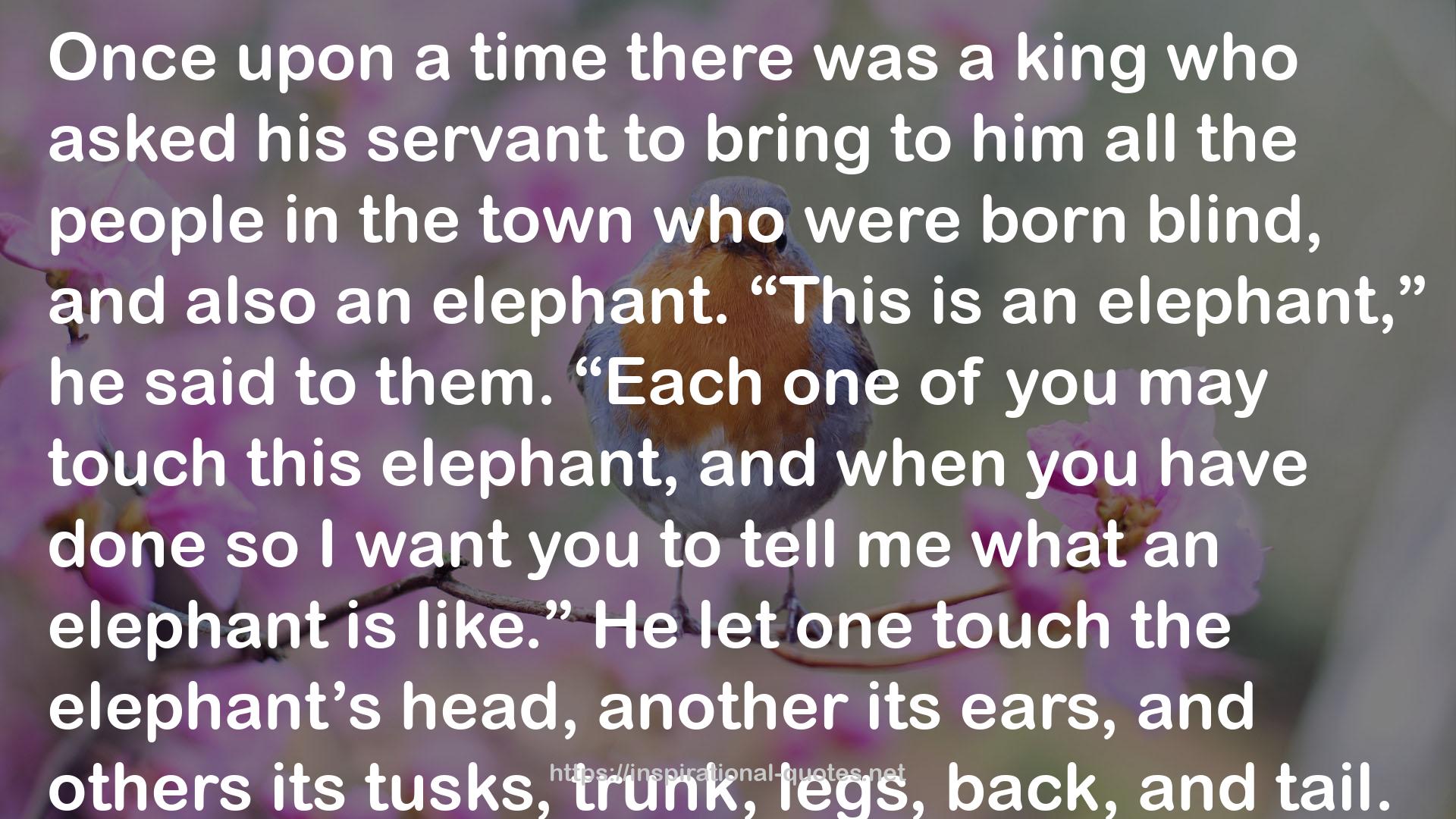" Once upon a time there was a king who asked his servant to bring to him all the people in the town who were born blind, and also an elephant. “This is an elephant,” he said to them. “Each one of you may touch this elephant, and when you have done so I want you to tell me what an elephant is like.” He let one touch the elephant’s head, another its ears, and others its tusks, trunk, legs, back, and tail. “Your Majesty, an elephant is like a large waterpot,” said the one who had only touched the elephant’s head. “Your Majesty, he is wrong,” rejoined the one who had touched the ears. “An elephant is like a flat basket.” The others insisted as adamantly upon the insights drawn from their own limited experience, respectively comparing the elephant to the sharp end of a plow, a thin rope, a big crib full of wheat, four pillars and, finally, a fan. Upon finishing this parable, Buddha said to the seekers who had been quarreling over the nature of God and the afterlife, “How can you be so sure of what you cannot see? We all are like unsighted people in this world. We cannot see God. Nor can we know what is going to happen after we die. Each one of you may be partly right in your answers. Yet none of you is fully right. Let us not quarrel over what we cannot be sure of. "
― , A Chosen Faith: An Introduction to Unitarian Universalism
